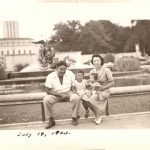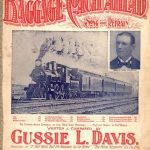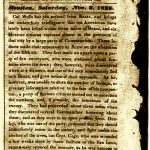This is the first in an occasional series of articles highlighting the fascinating collection of historical documents in the Briscoe Center for American History at UT Austin.
by Brenda Gunn
In July 1835, after two years in Mexico, part of that time confined to a jail cell, Stephen F. Austin received a passport issued by the Mexican government. Austin had gone to Mexico on a diplomatic mission, when Texas was still under Mexican rule, but set off to return home to Texas, where the political climate had shifted and tolerance for Mexican rule had deteriorated. On his way back, he spent time in New Orleans, purchasing several books that might provide clues to his state of mind.
Austin’s passport and the receipt for his book purchases are part of a collection held at The Briscoe Center for American History at UT Austin. The passport confirms that Austin boarded the Wanderer and set sail from Veracruz bound for the United States. The exact date of Austin’s landing in New Orleans is unclear, but the New Orleans Bee mentions Austin’s stay on Aug. 12, 1835.
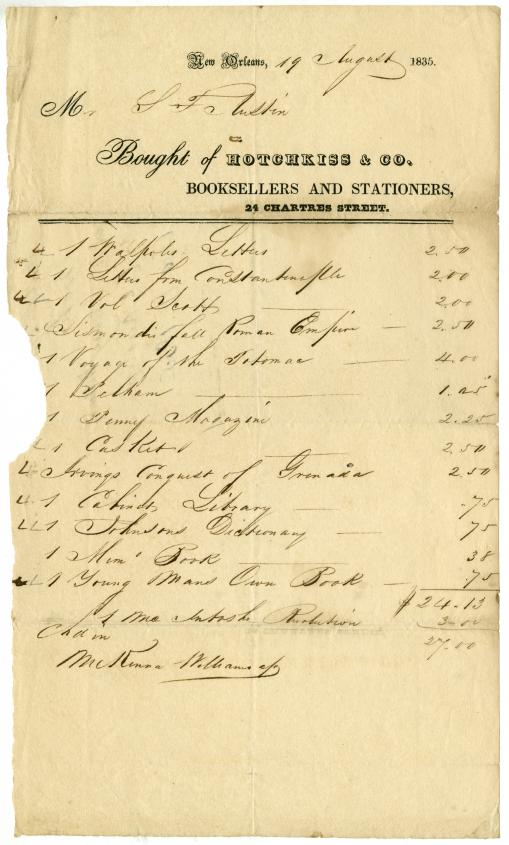
Stephen F. Austin’s 1835 receipt for Hotchkiss & Co. Booksellers and Stationers in New Orleans (Image courtesy of the Briscoe Center for American History)
While in New Orleans, Austin visited Hotchkiss & Co. Booksellers and Stationers on Chartres Street, where he spent $27 on books. It is clear that Austin was interested in conflicts. Listed on the receipt were two recent publications: A History of the Fall of the Roman Empire by J-C-L Sismondi and History of the Revolution in England 1688 by Sir James Mackintosh (both published in 1834). Austin also purchased Washington Irving’s military history, Spanish Conquest of Granada.
These choices suggest a shift from Austin’s long-held moderate outlook regarding Texas’ relationship with Mexico toward resignation that conflict was inevitable.
Other purchases listed on the receipt, however, reflect very different preoccupations.
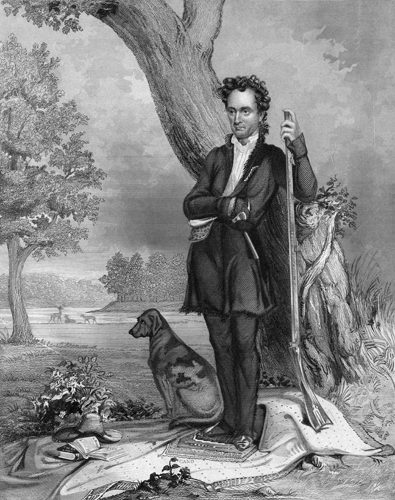
19th century depiction of Stephen F. Austin (Image courtesy of the Briscoe Center for American History)
An issue of the monthly literary magazine, Atkinson’s Casket: or Gems of Literature, Wit, and Sentiment and a copy of Penny Magazine, which focused on British culture, exhibit the cultural interests of the future revolutionary. Since Austin wrote often and at length, it also seems fitting that the receipt includes a copy of Samuel Johnson’s Dictionary of the English Language.
Austin also bought the Young Man’s Own Book: A Manual of Politeness, Intellectual Improvement, and Moral Deportment and Sacred Classics, or Cabinet Library of Divinity, featuring sermons on a variety of topics. Most of the books Austin bought that day are works of nonfiction and convey a serious frame of mind in August 1835.
He did leave room for a novel: Pelham: Or the Adventures of a Gentleman, a tale of a young man with political aspirations — a topic that may not have been far from Austin’s heart.
***
Check out more DISCOVER pieces:
Ann Twinam explains how a 19th century Peruvian “bought” his whiteness

